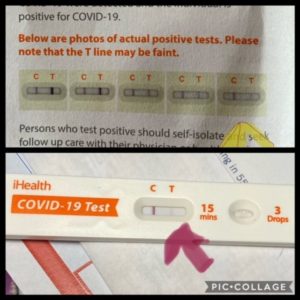I’m always the most motivated to write during those times when I one hundred percent absolutely am not able to write. The urge hits me during meetings, dinner with the family, while I’m commuting to and from the office, standing in line at the grocery store, or when I’m busy interacting with other people. I’m constantly catching myself during those moments thinking, “Man, sure wish I could be writing right now.” Then when it comes time to sit down and actually crank out words, suddenly I’d rather be doing anything else. Garbage needs emptying … I need a snack … Maybe I should call and check on mom … It’s nice outside and I’ve been couped up, time for a walk … The dishes need rinsed … That pile of dirty laundry …
Sound familiar?
I have to believe I’m not the only one out here struggling to find motivation for writing. Seems like I’m always waiting for just the right moment. Then when that moment finally comes, I just don’t wanna.
The problem isn’t because I don’t want to write, because I really do. Honestly. I think the problem is my brain just isn’t primed yet for writing. My grandparents had this old water pump in their side yard. It was creaky with rust, and white flakes of paint always peeled off in your hands whenever you pumped the thing. You had to crank it several times before any water would come out, but it worked. Just needed primed. Same way plastic explosives require det cord and priming caps before they’ll asplode. Or something. I have no real expertise here. I’m not a bombologist.
However, I-I-I-I work out…
When I hit the gym in the mornings before work, I wouldn’t dream of starting my lifts without going through a few warm-up exercises first. My body has been sleeping all night. The muscles are tight and stiff. I’m tired when the alarm clock goes off at 4:45 in the morning, and it’s a chore just to roll out of bed and stand up straight. (The fact that I’m old now, and I’m usually awake long before my alarm goes off anyway has nothing to do with it. Shut up, you. I see you over there in the corner, judging me.)
I don’t eat before I work out, but I do chug twelve ounces of water and drink a pre-workout on my way to the gym. It gets the blood pumping and all the juices flowing. I always start off with several minutes of walking at a slight incline and a moderate speed on the treadmill. This gets my arms, legs, and heart moving and blood circulating around to all the right places.
Only then do I start lifting. My first set of exercises is always lighter than my other three working sets. I’ll aim for 10-12 reps on my first set. After that, I’ll add more weight and really get to work.
Lots of folks use warm-ups before working or performing. Musicians warm their instruments and make fine-tuning adjustments before concerts. Singers go through voice exercises to warm up their vocal chords. Basketball players take shots and jog around ahead of a game. Assassins rack their weapons and check their ammo levels before zip-lining out of a Blackhawk. Err, okay, maybe not that last one. But you see where I’m going here, right?
I get my daily writing done on my lunch hour at work. Often, when that hour rolls around and it’s time for me to crank out the words, I just don’t feel like doing it. I’ve been working all morning. There are projects to get done. I’ve been dealing with the stresses of the day. There are a million other things I should be doing instead. Probably I should peek at the news and see if the world has blown up yet. Has anyone read or liked my latest posting? Maybe I should check. Literally, I’d rather be doing anything in that moment besides writing.
This is where writing warm-up exercises help smooth that transition so I can escape the stresses and commitments and drudgeries of my hum-drum ordinary working life and find that illusive flow state that helps with my writing.
Below are some of my go-to writing exercises, ways for me to ease into the zone and be more productive. If this is an area where you struggle too, maybe some of these will help.
The State of the Union Letter
Named, if I’m being honest, simply because last night was Biden’s 2024 State of the Union address. You write a letter to yourself discussing whatever is currently on your mind. This should be no longer than one page. Half a page is better. You have things to do, boss. Worlds to conquer and people to overthrow. This is an exercise. It’s only a drill, soldier. If you only have an hour or two to write, and your warm-ups take you forty-five minutes, that ain’t good. Anyway, just spending a few minutes screaming about whatever currently pisses you off can be therapeutic. If nothing else, it gets it off your chest so you can focus on the work. Do you feel happy? Sad? In love? Getting divorced? Promotion at work? Fired from work? That guy at the gas station was a total tool? Looking forward to an exciting weekend? Write about it. But briefly. This is you warming up your fingers and getting them ready for more serious work.
Character Out of the Box
Reach your little pincher fingers inside your current story and pluck out your main character. Set him or her down on a fresh blank sheet and create some random moment for them in a completely different setting or predicament. Write a few paragraphs about how they would tackle this new problem or situation. What if a cop marched onto the page right now with cuffs open and arrested them? How would they react? What if their significant other just sucker punched them out in public? What would they do?
Back the Car Up and Run Over That Body Again
Do you have a current project you’re already working on? Re-read the last page or two. Often, this is enough to get me back into the story and start writing again. Almost every writing session involves me going backwards a little and rereading what I wrote the day before. I try to keep myself out of edit mode. I need as much momentum as possible to keep me moving forward. But sometimes there’s just that one little obvious thing that needs a lil’ sumthin sumthin. I’ll go ahead and do it. Knowing that I’ve backed up and truly taken care of it, and that it’s not gonna rise up again from the dead and come after me, often helps me shift back into drive and keep on truckin.
Hopes and Dreams and Successes (Oh My!)
Close your eyes and imagine you’ve accomplished all your writing hopes and dreams. What does that look like? What does that feel like? Spend a few minutes writing about your hopes and dreams and goals as a writer. Write as if it’s already happened, as if your success is in the past. What’s that? What did you just say? You have no idea what you want to accomplish with your writing? Now’s as good a time as any to spend a few minutes thinking about it. But just a few minutes. Remember, you’re not here to swim among the dolphins of your hopes and dreams all day. Your characters are being attacked by freaking sharks with freaking laser beams shooting out of their freaking heads, and yesterday you only gave them a ballpoint pen to defend themselves. You have work to do. Dream a little, then move on.
“How Many Times Have You Flashy Thinged Me, K?”
Have you ever read a piece of flash fiction or other short story and thought to yourself, “I can do better than that.” Well then, do it. Go out to the internet, check around to make sure no one is looking, then National Treasure that bad boy down the back of your pants and run like a mofo. Paste it into a new document and re-write it to your satisfaction. You don’t have to feel guilty about this. It’s not like you’re going to sell it or claim it as your own. (Because you aren’t, right?) There’s no copyright infringement here. It’s just for you, and it’s just for fun. No one has to know you did it, or that you had it down your pants. Weirdo.
David Sedaris Notebook Scribbler
David Sedaris is one of the most brilliant story tellers of our generation. Ever read him? Better yet, ever listened to one of his books on audio? You haven’t?!? Go do it. I’m not kidding. Right now, man! I’ll wait …
Sedaris has been making daily entries in his notebooks for decades about any little thing that strikes his fancy. Usually these are little snippets of dialogue he overhears, or weird encounters he has with strangers, or just bizarre things that happen to him. Point is, freaky things happen to us every single day, and most of us either don’t even notice or we don’t remember.
Sedaris notices. He’s always watching. Not everything of course. Just the stuff that seems interesting. Writing these things down as they happen is an invaluable skill and terrific practice. Get a tiny notebook and pen. Keep these with you at all times. When you notice something, jot it down, at least the relevant details, enough that you’ll remember what happened. When you have more time later, type these notes up and turn them into a short story like David does. I’ve done this off and on myself. I start the day telling myself that something strange or funny or weird is going to happen today, and it’s my job to be on the lookout. I have to pay attention. I have to notice things. You’ll be amazed how quickly and easily you can discover something extraordinary hidden inside what might otherwise be a totally ordinary day.
The Tesla Coil
Did you know that Nikola Tesla invented the first Slinky? It didn’t sell well as a children’s toy because it was, well, electrified, and needed some major design modifications before Poof Products, Inc. — the company that makes the Slinky today — would agree to purchase the patent and begin mass production. That’s history, kids. That’s fact.
Is there some part of your story that still needs some research? Spend a few minutes looking it up before you begin your writing session. Sometimes we get stuck on a story because there’s some critical part that needs us to be just a little bit smarter before we can write it.
Fair warning though (awooga, AWOOGA!): that rabbit hole runs deep and fast. Don’t spend forever down there. Take a flashlight and a helmet and a rope if you need to. Use the buddy system. Have them haul you up if you can’t see daylight anymore or run out of air.
Does the Body Good
This last one isn’t an exercise, per se, but a reminder that the muscle you flex the most while you’re writing is your brain. Imagine an Olympic gymnast scarfing a box of Captain Crunch right before her floor routine. Or maybe how Taylor Swift might sound in twenty years after deciding to chain smoke four packs a day. Or how that guitar might sound with Cheez Whiz packed into the sound hole.
It’s impossible to perform at your best mentally if you don’t take care of yourself physically. Sleep is important. Proper nutrition is important. You ain’t gonna crank out quality story if you’re exhausted from three hours of sleep and a weekend bender. Mental illnesses like depression, anxiety, bipolarism, and obsessive-compulsive disorders can wreak havoc on any attempts to focus and be creative. Take care of yourself. Get help if you need it.
Happy writing, word nerds!





Great advice delivered with spot on humor, like always. Loved it.
Back the Car Up and Run Over That Body Again and How Many Times Have You Flashy Thinged Me, K? omg I am laughing! These titles are pure gold. Thank you for all the ideas. Sometimes I show up to my writing journal, dumbfounded. Why am I writing, again? The tiny gremlins that crawl around in my brain tend to scamper off once confronted with a page.
The hardest part about writing, at least for me, is forcing myself to sit in front of that screen or notepad and work. As Neil Gaiman suggests, when it comes to writing, you can do only one of two things: either write or nothing.